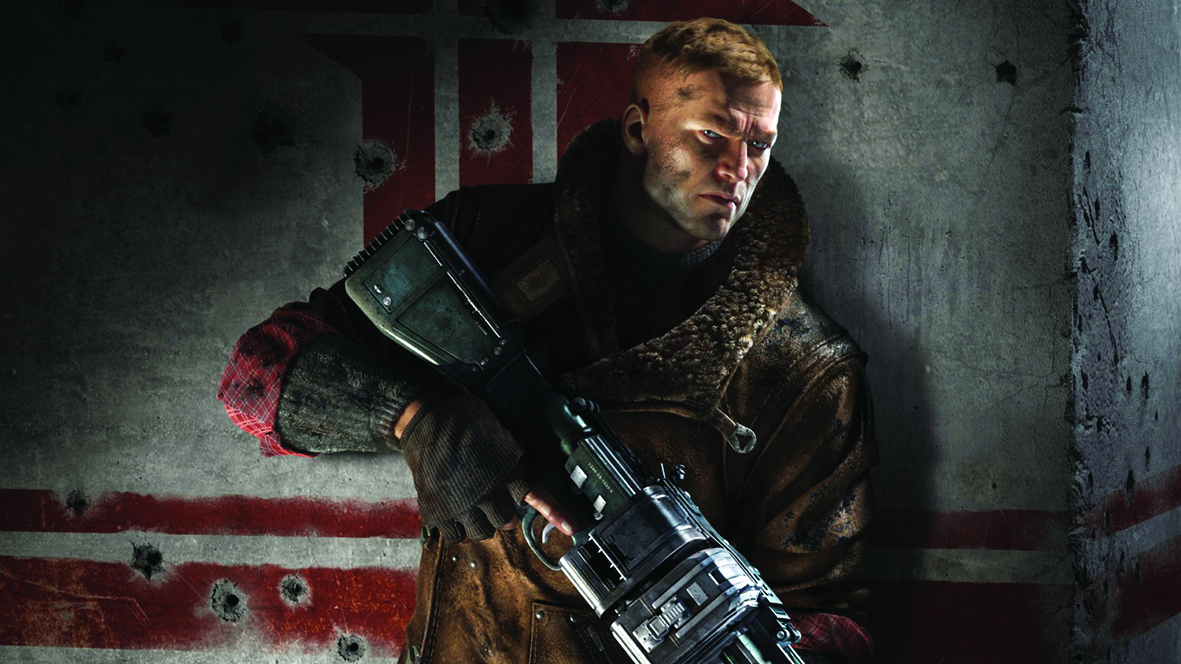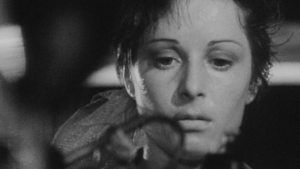One of the most bizarre things about the videogame world today is that Wolfenstein, a game franchise dating back to the 1980s, is controversial again. If you had separated yourself from the rest of the planet over the last year or so, that might not seem particularly surprising – but for different reasons. Wolfenstein has always been a little controversial for its violent imagery, its role in helping to create the first-person-shooter genre and its relationship to its younger, brasher siblings, Doom and Quake. Perhaps, you might think, this new iteration of the Wolfenstein franchise has found yet another way to take bad taste to the extreme. The groundbreaking 1992 Wolfenstein 3D does feature Adolf Hitler in a dual-wielding machine-gun mecha-suit, after all.
Surprisingly, though, what is contentious about Wolfenstein II: The New Colossus, developed by Swedish company MachineGames and released in late 2017, is its depiction of the killing of Nazis. This has always been a fairly stable element of the series: 2009’s Wolfenstein is a pulpy take on pulpy World War II media that sees players fight their way through aforementioned mecha-Hitlers and an array of other alternate-history fascists. It’s set in America in the 1960s, where the Nazis have won the war and taken over, leaving the player no choice but to become a rebel. In the early 1990s, this kind of material would have seemed absurd, even a little gauche, in its potential trivialisation of horrendous world events. In more recent times, on the other hand, some sectors of the videogame community and the broader political sphere see portrayals of Nazi-killing as a political statement.
Mainstream videogame developers aren’t usually prone to deliberately political statements, so the fact that Wolfenstein II: The New Colossus finds itself making one is really owed more to the exceptional nature of current events. Yet the developers have, to their credit, owned this position and happily taken on the role of the videogame world’s Antifa (and cannily used it as a marketing tool). Pete Hines, vice president of marketing at Wolfenstein publisher Bethesda, told Rolling Stone:
We weren’t going to hide from the fact our game is about killing Nazis and freeing the US from their rule, and if we can reference current events as part of talking about the game, so be it. Nazis are evil. We aren’t afraid to remind people of that.
Wolfenstein’s marketing similarly led from the front, running social-media campaigns that referenced white supremacist leader Richard Spencer getting punched in the face, for example. Then there’s the game’s tagline: ‘Make America Nazi-Free Again’ – a hardly veiled reference to US President Donald Trump’s election-winning slogan.
This might seem like a slightly surreal milestone to mark the way the political sphere has changed in recent times, but there’s more to this story. The videogame world has, over recent years, proven to be ripe for right-wing agitation. It’s now clear that far-right crusaders like Milo Yiannopoulos (who also recently toured Australia) deliberately use the outrage, resentment and outsider anxiety common among young men in the videogame world to recruit political converts. In 2014, the maelstrom of Gamergate, in particular, embodied a nexus between disenfranchised young men interested in videogames and geek culture, and the far-right zealots hoping to nudge them towards politics.
Videogame culture contains a great many normal people who find fascism and its ilk abhorrent, and a great many further who actively campaign against it (such as, it now seems, Wolfenstein’s developers and publishers). But it is also a hub for right-wing extremists, and that fact is getting more evident by the day. VICE recently reported that Steam – the largest computer-game distribution and social platform on the internet, with over 125 million users – contains a great number of Nazi-style communities, for those who want to game with like-minded fascists. These range from those who style themselves as jokers and trolls, to authentic white supremacists and National Socialist groups using Steam as a platform.
VICE contacted Valve, the Seattle-based company that owns and runs Steam, for comment, but never heard back. To observers of the videogames industry, this is hardly a surprise: Valve, once also a videogame developer, sees itself as techno-libertarian, with little interest in either social commentary or regulating the platforms and services it manages. The company has enjoyed immense creative success by being a workplace with little hierarchy (employees are often free to work on whatever project they please with no line management), but this has also fostered big problems. Valve does not, for example, have any community-management team for the forums and social elements on Steam – not by accident or oversight, but by design. If there is no-one to deal with the problem, perhaps there is no problem at all (so the thinking goes).
But it is 2018, and Nazis walk American streets and take up space on the biggest computer-game platform in the world. Maybe we do need Wolfenstein after all.





